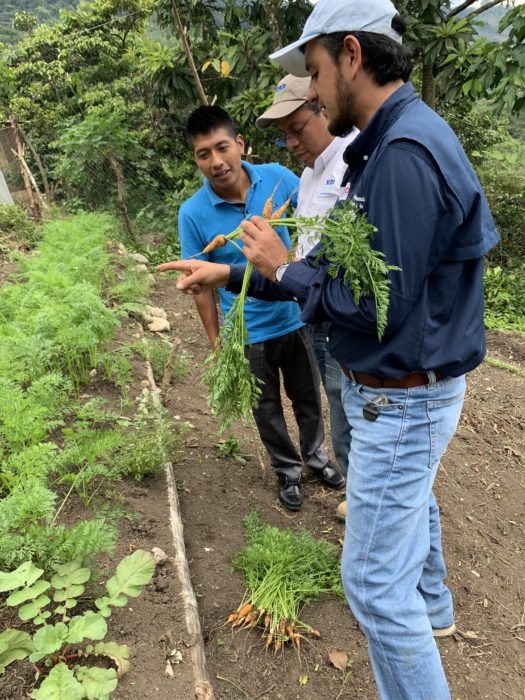
According to Guatemala’s most recent census, youth between the ages of 15 and 29 make up almost a third of the country’s population of 17 million. Half of youth live in urban and semi-urban areas, while the other half live in rural areas. Of the total youth population, 57 percent are economically active and, of these, almost 30 percent work in the agricultural sector, with low levels of education and training for their work.
Meanwhile, coffee is one of Guatemala’s main exports and its cultivation constitutes an important currency and employment generator for the country. But coffee cultivation also faces several challenges, such as maintaining quality standards that allow them to be more competitive, price fluctuation in the market and environmental problems, such as pests.
An additional challenge that has not been given enough emphasis is the generational shift from coffee farming. Coffee-growing communities are mostly older. The contributing factors are varied, including high cost of production versus the low return of capital derived from international coffee prices, limited access to productive resources—mainly access to land ownership for cultivation—and a lack of new technologies and innovative strategies in production. In this context, youth have limited opportunities to grow their skills and ideas within the agricultural sector as a way of entering the formal labor market.
With these issues in mind, the USAID Feed the Future Coffee Value Chains Projectwas developed to support coffee-growing communities in both improved and more cost effective coffee production, as well as promoting alternative sources of income to coffee production. The Federation of Guatemalan Coffee Cooperatives (FEDECOCAGUA), leads the former part of this initiative, while NCBA CLUSA leads the latter part. The model used for promoting alternative sources of income emphasizes food production for consumption and income generation, participatory savings and access to credit, and addressing equity through women’s economic empowerment and engaging youth.
The target audience for these activities are female members of coffee cooperatives and youth from coffee farming families.
Project activities include capacity building for home-based poultry production and vegetable gardens to support the availability and sustainable access to food and the generation of income through the sale of surpluses. These activities are complemented by team-building exercises and basic financial education to boost a culture of savings and access to micro-credits that favors reinvestment. The model includes the identification and recruitment of group administrators and agricultural promoters.
The anticipated results of the project fall into three categories:
- Food security and nutrition:Increased availability of protein and nutrient-dense vegetables, and increased awareness of healthy nutrition-related behaviors and practices.
- Social cohesion:Expanded social networks through savings and loan groups, and opportunities for participation and leadership of women and youth.
- Economic opportunity:Return on investment of seed capital, additional income, and access to credit.
To date, the project has engaged 210 young people (194 women and 16 men), all of whom received an initial investment for poultry production and/or nutrient-dense native crop seeds, valued at approximately USD $200.


